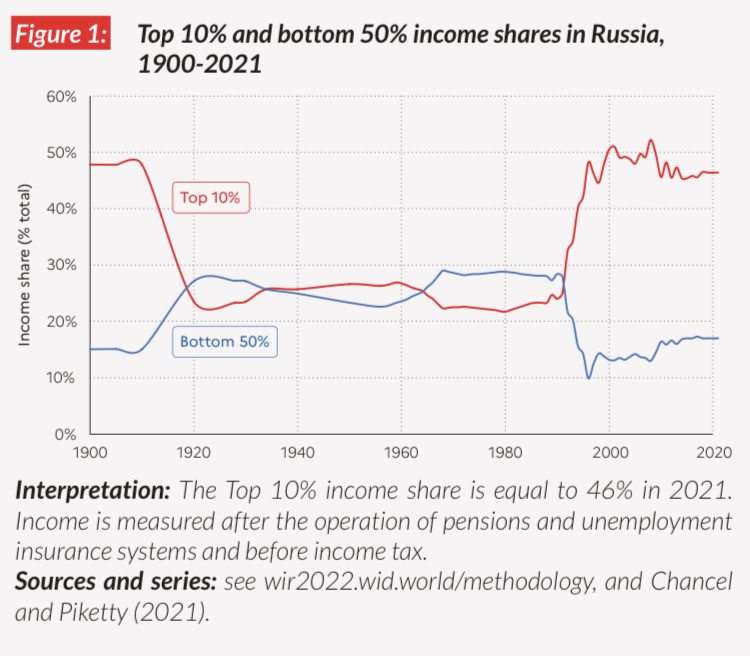Every time I talk about communism to my extremely right-wing dad, he always says without fail “The high-ranking members of the communist party are elitists who live like kings in mansions and drive luxurious cars while the rest of the population live like peasants. That makes them worse than capitalists.” I call that bs, but I dont know much about the wealth differences between high-ranking party members and the rest of the populous. Is it really that wide?
So he described capitalism and called it communism? Because last I checked nearly all members of Congress are multimillionaires and not like, a few million but tens and hundreds of millions. lol.
Stalin died with less to his name than the average American worker at the time. Not because the USSR was poor, but because party members were compensated modestly. Not extravagantly as in the US.

From here.
The upheavals in Eastern Europe did not constitute a defeat for socialism because socialism never existed in those countries, according to some U.S. leftists. They say that the communist states offered nothing more than bureaucratic, one-party “state capitalism” or some such thing. Whether we call the former communist countries “socialist” is a matter of definition. Suffice it to say, they constituted something different from what existed in the profit-driven capitalist world–as the capitalists themselves were not slow to recognize.
First, in communist countries there was less economic inequality than under capitalism. The perks enjoyed by party and government elites were modest by corporate CEO standards in the West [even more so when compared with today’s grotesque compensation packages to the executive and financial elites.—Eds], as were their personal incomes and lifestyles. Soviet leaders like Yuri Andropov and Leonid Brezhnev lived not in lavishly appointed mansions like the White House, but in relatively large apartments in a housing project near the Kremlin set aside for government leaders. They had limousines at their disposal (like most other heads of state) and access to large dachas where they entertained visiting dignitaries. But they had none of the immense personal wealth that most U.S. leaders possess. {Nor could they transfer such “wealth” by inheritance or gift to friends and kin, as is often the case with Western magnates and enriched political leaders. Just vide Tony Blair.—Eds]
The “lavish life” enjoyed by East Germany’s party leaders, as widely publicized in the U.S. press, included a $725 yearly allowance in hard currency, and housing in an exclusive settlement on the outskirts of Berlin that sported a sauna, an indoor pool, and a fitness center shared by all the residents. They also could shop in stores that carried Western goods such as bananas, jeans, and Japanese electronics. The U.S. press never pointed out that ordinary East Germans had access to public pools and gyms and could buy jeans and electronics (though usually not of the imported variety). Nor was the “lavish” consumption enjoyed by East German leaders contrasted to the truly opulent life style enjoyed by the Western plutocracy.
Second, in communist countries, productive forces were not organized for capital gain and private enrichment; public ownership of the means of production supplanted private ownership. Individuals could not hire other people and accumulate great personal wealth from their labor. Again, compared to Western standards, differences in earnings and savings among the populace were generally modest. The income spread between highest and lowest earners in the Soviet Union was about five to one. In the United States, the spread in yearly income between the top multibillionaires and the working poor is more like 10,000 to 1.
Third, priority was placed on human services. Though life under communism left a lot to be desired and the services themselves were rarely the best, communist countries did guarantee their citizens some minimal standard of economic survival and security, including guaranteed education, employment, housing, and medical assistance.
Fourth, communist countries did not pursue the capital penetration of other countries. Lacking a profit motive as their motor force and therefore having no need to constantly find new investment opportunities, they did not expropriate the lands, labor, markets, and natural resources of weaker nations, that is, they did not practice economic imperialism. The Soviet Union conducted trade and aid relations on terms that generally were favorable to the Eastern European nations and Mongolia, Cuba, and India.
All of the above were organizing principles for every communist system to one degree or another. None of the above apply to free market countries like Honduras, Guatemala, Thailand, South Korea, Chile, Indonesia, Zaire, Germany, or the United States.
Thank you so much for this comrade!
No probs!
There were no such drastic wealth differences under Soviet socialism and for the most part there aren’t any in AES states today (between the party and the people that is; naturally there are very rich people in some AES states but they are not party officials and they got rich through private business). Where corruption has historically tended to creep into socialist systems is with people in certain positions getting privileges in terms of access to goods and services. Of course the fight against corruption is always an ongoing struggle in any society, it’s just that under capitalism what would be seen as corruption under socialism is fully legal and simply called lobbying or doing business.
When we speak of privileges we must be clear about the fact that simply being wealthy in a capitalist society offers you vastly more unfair privileges over the rest of the population than being a party official in a socialist state ever has. Under capitalism nobody bats an eye when poor people are not able to afford to buy the kinds of privileges that rich people can. Socialist societies at least make an attempt to correct the most extreme disparities of capitalism, the worst of which is the ability for the wealthy to buy political influence and to override the interests and the will of the majority.
This is why we do not speak of socialism as being the equal distribution of wealth, which is the erroneous idea that liberals have of socialism, but rather of the democratic dictatorship of the proletariat over all political and economic spheres of society which is the true essence of socialism. By contrast when the liberal speaks about either socialism or capitalism they always fail to apply class analysis and instead reduce everything to the level of the individual.
In socialist Poland the wage gap between the lowest and highest was around 1 to 6, and there was not many people who got the 6. Party and military leaders lived comparably to small time burgies of West Germany for example.
Even if it was, think about the numbers:
under capitalism, bosses take about 50% of workers’ value
suppose under corrupt communism, you had a red bourgeoisie siphoning off 1-2% of the workers’ wages; that would make them fabulously wealthy, but the workers would still be much better off
And this is not even close to what happens in reality, right?
eh, I mean, I’m not gonna say it’s never a problem. Look up ‘red bourgeoisie’ or ‘new class’. Depends on when and where we’re talking about.
Communists aren’t perfect people who are immune to corruption; to think that would be utopianism.
Depends where and when you are referring to. In the later years of the socialist bloc this was probably accurate, especially after Gorbachev’s liberalizing reforms began in the 80s. Before that no, there really wasn’t much if any of this sort of bureaucratic new bourgeoisie to speak of. Then during the 90s the remaining AES states were busy trying just to survive and most (with the exception of the DPRK) had to open up their economies to a lot of market liberal reforms. And as we know private enterprise always brings along with it considerable corruption. Nowadays things are getting much better as the economic situation is stabilizing even in the poorest AES states, and the non-Western world is growing in strength by leaps and bounds, which also means that the ruling communist parties can afford to carry out anti-corruption campaigns and fix the underlying material imbalances that were driving the rise of corruption in the 80s and 90s.
The point I’m trying to get across is that we should always avoid blanket statements like “X did/didn’t happen under socialism”, we need to differentiate as every socialist state’s experience was unique in its own way and things also changed over time.
That is generally not the case, many party members in communist states live fairly modest lifestyles. They are comfortable, and yes they may make slightly above average, but nothing like the billionaire oligarchs that control the US or other western countries. Are there exceptions to that? Of course, just because we are communists doesn’t give us some inherited immunity to corruption. It’s certainly not the rule though.
For the sake of arugment, even if we grant him that the ruling caste lives a more luxurious lifestyle, how would that make them worse than capitalists? Capitalists already have a ruling caste that have obscene wealth.
Capitalist countries have rampant homelessness and people starve in the streets while food is thrown away and wasted. Charities in Texas are actually fined for trying to feed the homeless.
Cuba houses their population, educated their population, and has raised medical standards past that of “developed” capitalist countries like the United States.
China has demonstrably improved the life of all of their citizens, lifting millions of people out of poverty and nearly removing homelessness. Vietnam gives land and housing to their people as long as it is utilized.
The DPRK has generous work-life balances and continuining education programs, and spends a lot of their time and money on providing housing for as many of their people as they can.





